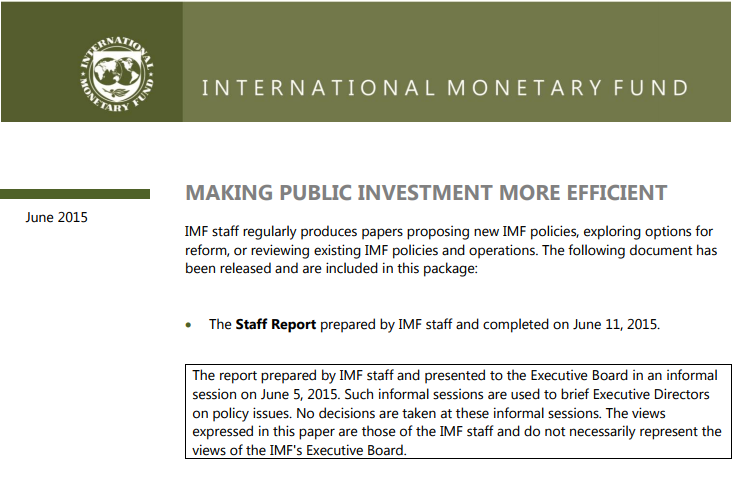748 results found
Featured results



More results
This brief outlines some of the issues surrounding permitting and licencing regimes for renewable energy projects and why they are important

The purpose of this study is to provide an overview of the main elements that should be taken into consideration when evaluating the potential for specific projects, it is important to give some indication of potential cost (capital and operating) of an LNG chain.

In September 2015, the General Assembly adopted the 2030 Agenda for Sustainable Development which includes 17 Sustainable Development Goals (SDGs) and emphasizes on a holistic approach to achieve sustainable development for all.

The paper “Partnering to Build a Better World: MDBs’ Common Approaches to Supporting Infrastructure Development” presents a brief description of how MDBs work with their Borrowing Member Countries (BMCs) .

The Environmental Performance Index (IDA) is an instrument for monitoring and controlling environmental management in port facilities.

This note seeks to identify a research agenda for addressing the main gaps in information for understanding the drivers and impediments of long-term investment and related financing.

The Decision Tree Framework is a robust decision scaling approach from the World Bank that provides resource-limited project planners and program managers with a cost-effective and effort-efficient, scientifically defensible, repeatable, and clear method for demonstrating the robustness of a project to climate change.

This paper studies the joint decision to invest in such infrastructure, and retrofit it later, given that future climate damages are uncertain and follow a geometric Brownian motion process with positive drift.

The guidelines give concrete advice to countries on how to manage their responsibilities as company owners, thus helping the state-owned enterprises to become more competitive, efficient and transparent.


This paper finds that better Public Investment Management enhances public infrastructure quality and economic growth, and pinpoints key institutional reforms needs to boost public investment efficiency and productivity.


This report outlines the guidance and recommendations concerning the reform proposals of state owned enterprises operating in the field of water supply and urban sanitation as well as providing guidance/recommendations concerning economic management options for service providers in Vietnam.


Given the pivotal role of public finance agencies in scaling up climate finance, Multilateral Development Banks (MDBs) have a major role to play in mainstreaming climate change and in providing finance in an effective, catalytic manner.


The purpose of the Guidelines is to establish the types of socioeconomic evaluations that will be applicable to the investment programs and projects considered by the dependencies and entities of the Federal Public Administration.

The Decision Tree Framework is a robust decision scaling approach from the World Bank that provides resource-limited project planners and program managers with a cost-effective and effort-efficient, scientifically defensible, repeatable, and clear method for demonstrating the robustness of a project to climate change.

This guide outlines five steps in the context of achieving a knowledge exchange, (i) Anchor the knowledge exchange, (ii) Define the knowledge exchange, (iii) Design and develop the knowledge exchange, (iv) Implement the knowledge exchange, (v) report the results. Case studies from South America and Africa are discussed with reference to this guide. This is the second edition of the document updated in 2015.

This guide outlines five steps in the context of achieving a knowledge exchange, (i) Anchor the knowledge exchange, (ii) Define the knowledge exchange, (iii) Design and develop the knowledge exchange, (iv) Implement the knowledge exchange, (v) report the results. Case studies from South America and Africa are discussed with reference to this guide. This is the second edition of the document updated in 2015.

This guide outlines five steps in the context of achieving a knowledge exchange, (i) Anchor the knowledge exchange, (ii) Define the knowledge exchange, (iii) Design and develop the knowledge exchange, (iv) Implement the knowledge exchange, (v) report the results. Case studies from South America and Africa are discussed with reference to this guide. This is the second edition of the document updated in 2015.

A growing population in cities led to an increase in the contamination of water around Lima and Callao, Peru as most sewage was deposited into the Rimac river and Pacific ocean without any treatment
The IMF/WBG Note presents policy issues related to Islamic finance for consideration by the G20 members.
This report looks at the nature of Variable Renewable Energy (VRE) and the resulting challenges associated with the integration of VRE technologies into a power system. It provides an overview of the measures available to limit and manage these challenges. This report highlights the importance of increased flexibility when integrating high levels of VRE, and focuses on two sets of options to provide such flexibility: natural gas-fired power generation technologies and energy storage.






